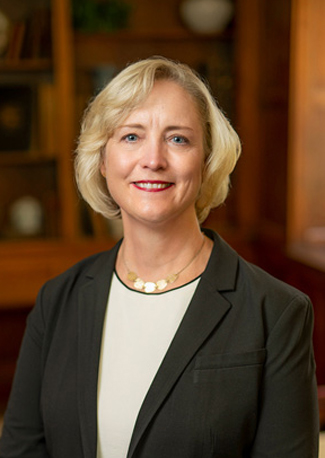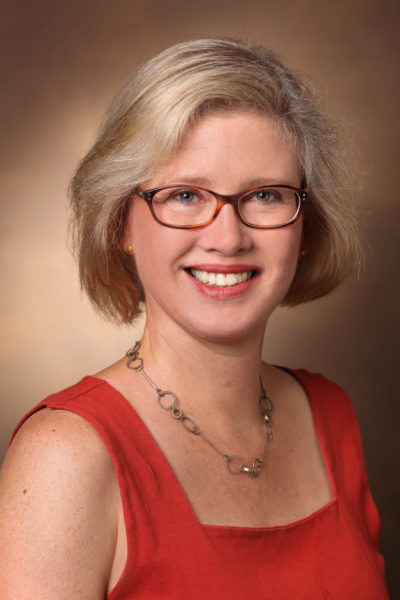Three of Vanderbilt University’s key initiatives to prevent sexual harassment are highlighted in a searchable repository launched by the National Academies of Science, Engineering and Medicine in its Action Collaborative on Preventing Sexual Harassment in Higher Education.
Vanderbilt University and Vanderbilt University Medical Center are founding members of the Action Collaborative, established in 2019 to support colleges, universities and research institutions with implementing recommendations made in a report by the National Academies titled “Sexual Harassment of Women: Climate, Culture, and Consequences in Academic Sciences, Engineering, and Medicine.”
The website, which shares policies and practices of the collaborative’s members, provides information on how Vanderbilt added language to its faculty application and offer letters to improve screening of job candidates with a history of discrimination or harassment, and how one department amended its “direct-admit” graduate admissions policy to diffuse power differentials. A third Vanderbilt initiative focuses on the first sexual harassment survey of university-employed faculty and postdoctoral fellows and trainees in spring 2019.
As co-delegates to the Action Collaborative, Vice Provost for Faculty Affairs Tracey George, Professor of Cell and Developmental Biology Andrea Page-McCaw in the School of Medicine and Associate Professor of Biological Sciences Kathy Friedman in the College of Arts and Science are spearheading Vanderbilt’s efforts on this project.

“It is important for Vanderbilt to take a leadership role on this critical issue of preventing sexual harassment—and it is an honor to have our efforts recognized by our peers,” said Provost and Vice Chancellor for Academic Affairs Susan R. Wente. “I’m grateful to professors Friedman and Page-McCaw and to the many others who have provided input on efforts to improve the workplace experience for generations to come.”
The university has shared the following three initiatives with the Action Collaborative repository:
- Altering Departmental Admissions Policies to Diffuse Dependent Relationships Between Graduate Students and Their Advisers, which describes a process used by a department to amend its “direct-admit” admissions process.
- Screening Faculty Job Candidates for a History of Discrimination or Harassment Through Self-Reporting, which describes the development and implementation of language in faculty employment offer letters that requires applicants to self-report if they’ve been investigated or found responsible for workplace misconduct.
- Surveying Faculty and Postdocs About Experiences with Sexual Harassment and Misconduct at the Institution, which describes administration of a climate survey and how Vanderbilt is using the results to inform policies and practices.
Arie Nettles, professor of clinical pediatrics and director of the Office of Inclusion and Health Equity for VUMC, serves as the medical center’s delegate to the Action Collaborative. VUMC has shared the following three initiatives with the repository:
- Becoming an Active Bystander
- Respect@Work: Eliminating Sexual Harassment
- The SHARE Center (Sexual Harassment: Awareness, Response, and Education)

“A wonderful aspect of belonging to the Action Collaborative is that member institutions are learning from each other by sharing their practices and policies,” said Friedman, who serves as vice chair of the Department of Biological Sciences. “And we know that we’ll need to submit updated reports each year to the collaborative, so it’s an incentive to preserve our momentum by being proactive with these innovations.”
Page-McCaw, director of graduate studies for the Department of Cell and Developmental Biology, spearheaded improvements to her program’s “direct-admit” process in which prospective students choose an adviser during the application process.

“A direct-admit student is particularly dependent on their adviser because of their complete reliance on the adviser’s funding, along with the student’s reduced professional network and decreased potential to change labs,” McCaw said. “Our program is working to create mentoring networks and provide departmental funding to improve outcomes for direct-admit students.”
Vanderbilt’s first sexual harassment survey of university-employed faculty and postdoctoral fellows and trainees was informed by findings and recommendations released in the National Academies’ 2018 report, which urged a system-wide change to the culture and climate in higher education to prevent and effectively respond to sexual harassment.
At Vanderbilt, 60.3 percent of faculty and 56.1 percent of postdocs responded to the Sexual Harassment Survey. The high response rate provides greater confidence in the results as approximating the experiences of the population of faculty and postdocs. The university plans to repeat the survey in 2022-23 to allow for longitudinal comparison and an assessment of the effect of new initiatives.
Vanderbilt University hosted a satellite meeting of the Action Collaborative’s first public summit in November 2019. The Action Collaborative’s third public summit, which will be virtual this year, is scheduled for Oct. 12-13.